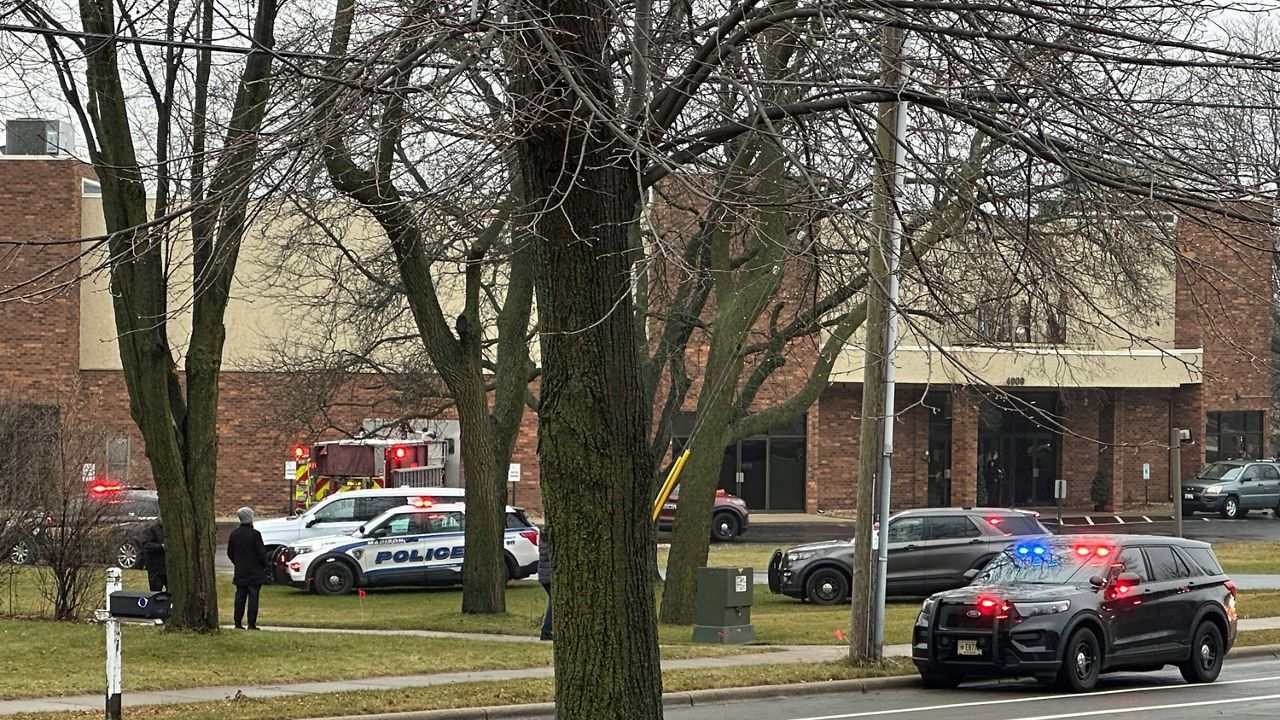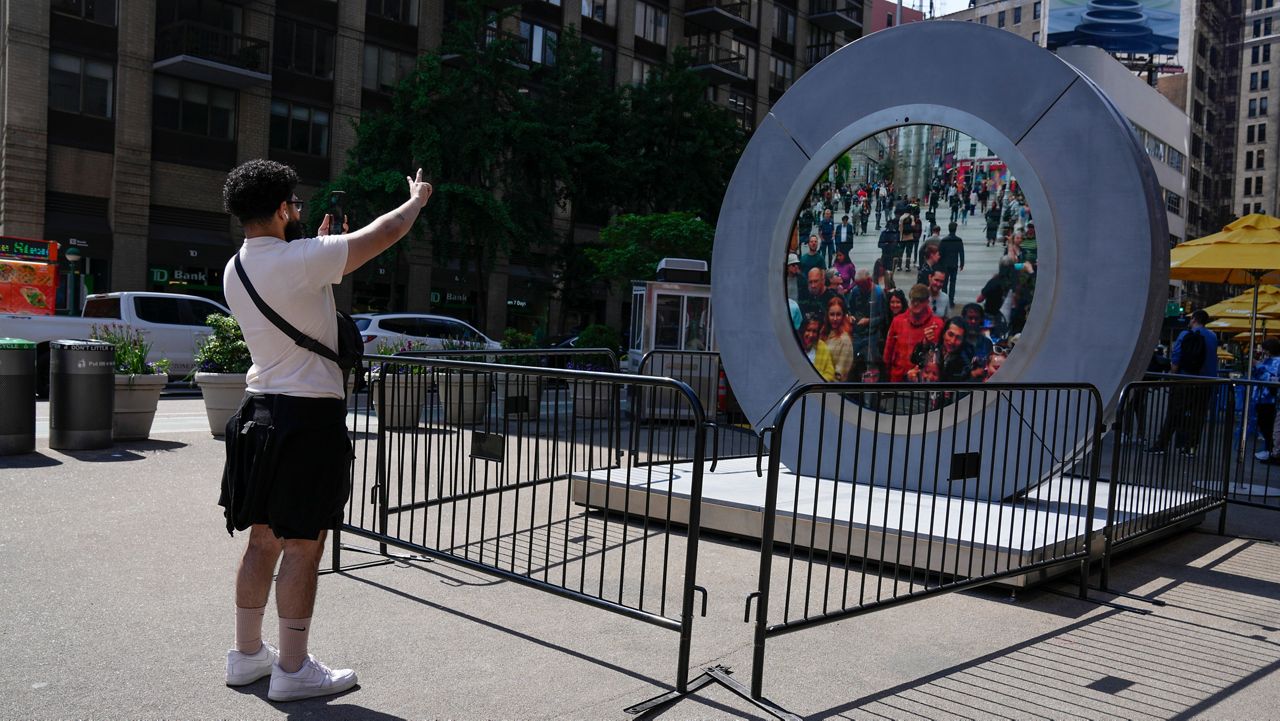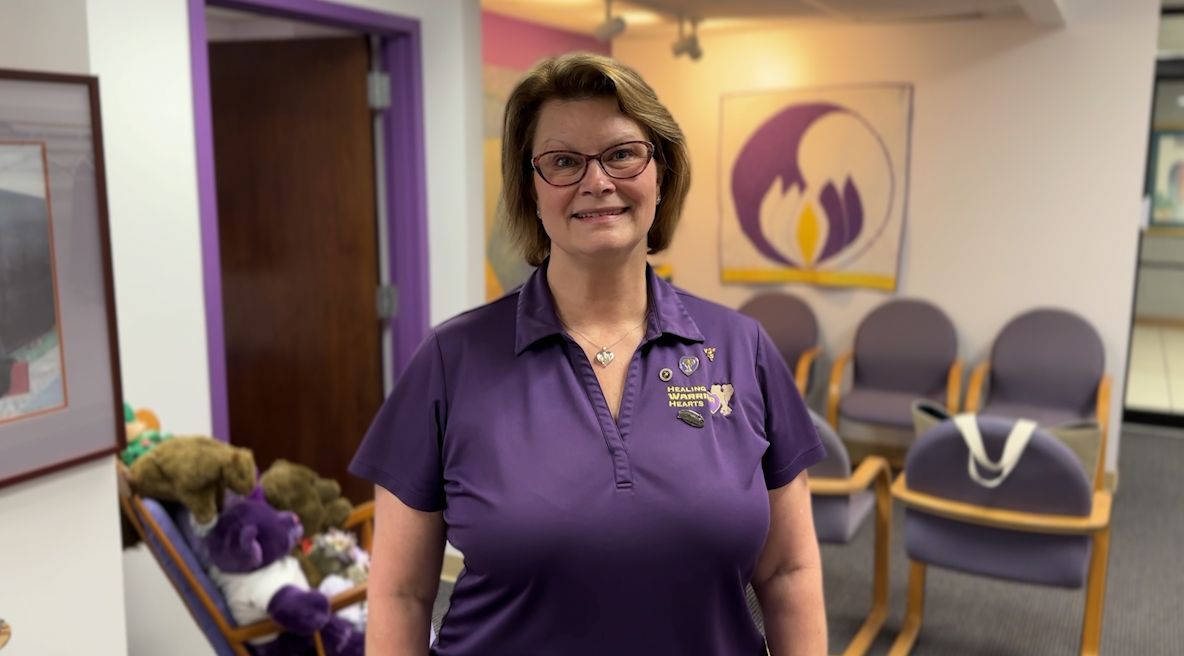Editor’s note: First in a five-part series on human trafficking in Wisconsin: Just how big of a problem is this?
FOND DU LAC, Wis. — Adam White was perusing the grant proposal when his brows began to furrow.
“I’m like, ‘No way. Really?” said White, president-elect of the Fond du Lac Morning Rotary. The Fond du Lac Area Women’s Fund was seeking money for its “Fond du Lac Says No More” initiative. It’s a collaborative effort with ASTOP (Assist Survivors. Treatment. Outreach. Prevention) Sexual Abuse Center and SSM Health Fond du Lac to enable them to strengthen their response to human trafficking in Fond du Lac County.
What You Need To Know
- Human trafficking occurs in every county in Wisconsin
- The National Human Trafficking Hotline reports that since its inception in 2007, Wisconsin has had 796 human-trafficking cases involving 1,640 victims
- A 2019 Wisconsin DOJ study found data likely undercounts human trafficking encountered by law enforcement
- The lack of hard numbers affects the ability of victim-service agencies to secure funding
To White, he didn’t understand how “human trafficking” and “Fond du Lac County” could belong in the same sentence.
“It was just really eye-opening,” White said of the presentation. “That whole process, everything those guys have been doing that nobody knows about. And just trying to bring it to fruition and show people that it’s really not about the numbers. It's, this is happening. We need to do something about it.
“And you know, one child or one youth, whatever it might be, is one too many. And so, unfortunately, and I will admit to this, it took me aback. Those guys coming in to present really opened my eyes to that. So that is a sad reality. That is something that is a thought process out there for many people.”
Human trafficking is a worldwide crisis. That includes Wisconsin, where trafficking occurs in every county in the state, according to Dana World-Patterson, chair of the Milwaukee human trafficking task force.
“It is a problem,” said Green Bay Police Chief Chris Davis. “It is a problem everywhere. It is a problem in this community. And I think, as a whole, it's a problem that we, as a society, really need to do more about.
“There are some promising ideas out there. But really, we need to devote – I'll come right out and say it because I really believe this – we really need to devote more resources to this issue because it impacts a lot more people than you probably realize.”
Today, we really don’t know how big a problem it is or how many people it affects. The National Human Trafficking Hotline reports that since its inception in 2007, Wisconsin has had 796 human-trafficking cases involving 1,640 victims. The vast majority were for sex trafficking. However, in 2019, a Wisconsin Department of Justice law enforcement assessment on sex trafficking revealed concerns in several areas. The findings included the following:
- Uniform Crime Reporting Program human trafficking data is inconsistent across the state and more incomplete than previously believed. Due to confusion about, and inconsistencies in legal definitions and data entering practices, Wisconsin’s human trafficking UCR data likely undercounts human trafficking encountered by law enforcement.
- Respondents report human trafficking is occurring in Wisconsin; however, quantifying law enforcement involvement with human trafficking incidents remains a challenge because identification and data-entering practices differ across the state.
- Responses demonstrate a desire and need for training on how to differentiate between prostitution and sex trafficking both operationally and for data collection purposes.
- Responses indicate that many agencies would benefit from training about the dynamics of child sex trafficking and the statutory elements of Trafficking of a Child.
More specifically, the assessment found the Uniform Crime Reporting Program human-trafficking data is inconsistent across the state and more incomplete than previously believed. Due to confusion about, and inconsistencies in legal definitions and data-entering practices, Wisconsin’s human trafficking UCR data likely undercounts human trafficking encountered by law enforcement. Respondents reported human trafficking happens in Wisconsin.
However, quantifying law-enforcement involvement with human-trafficking incidents remains challenging because identification and data-entering practices differ across the state. Responses demonstrated a desire and need for training on how to differentiate between prostitution and sex trafficking operationally and for data-collection purposes. Responses indicated many agencies would benefit from training about the dynamics of child sex trafficking and the statutory elements of trafficking of a child.
There was a six-month follow-up study that showed improvement in some areas. Information from those reports was then used as part of an application in 2020 for a multi-year grant from the United States Department of Justice Office for Victims of Crime. Then, in January, Wisconsin Attorney General Josh Kaul announced the formation of the Wisconsin Anti-Human Trafficking Task Force. It will be comprised of federal, state and tribal law enforcement and victim service providers.
Melissa Fus is the special agent in charge of the Human Trafficking Bureau under the Wisconsin Division of Criminal Investigation and oversees the law enforcement portion of the WAHTTF. She said one of the main goals is collaboration.
“And when we say collaboration, it's working with victim-service providers,” she said. “To make sure we're getting services to the victims; it’s very victim-centered, and also support for investigations and to area law enforcement agencies. That support can be investigative, and that support can be training and education. There are many different facets with this. But it's more about collaborating as a state and making sure that resources are available to the victims when they do come forward.
“I think the second piece to this is data collection. I know we receive a lot of requests about data and what it looks like for the whole state and, unfortunately, it's very unreliable. You can't ever get a good, clear picture of human trafficking in the state just because not all law enforcement agencies responded to that survey, or not all of them recognize human trafficking as human trafficking. You also have the flipside of the victims that might disclose and work with providers, but they might not want law enforcement involvement. So, we're not getting that data from those that don’t have law enforcement involvement.”
And therein lies the rub. To believe there is a problem and gain resources to combat it, you have to show there is a problem. And the inability to produce hard numbers has consequences.
Through a partnership with social services and other local agencies, a pilot program launched screening for sex trafficking in Fond du Lac-area schools. But funding for that program ended on March 31.
“And it makes me sad to hear that because we didn’t have the numbers, even on a level of funding,” said McKenzie Zahradnik, a Prevention Educator at ASTOP. “We’re losing it because we weren’t able to prove those numbers.” “And it makes me sad to hear that because we didn’t have the numbers, even on a level of funding,” said McKenzie Zahradnik, a Prevention Educator at ASTOP. “We’re losing it because we weren’t able to prove those numbers.”
Stephanie Schultz, the former executive director of ASTOP, called the loss of that funding “devastating.”
And that ultimately brings the discussion to another place.
“So, I think, this gets to the heart of putting it in a space of humanity,” said Maria Turner, executive director of the Fond du Lac Area Women’s Fund, and held previous roles at the Green Bay Center for Childhood Safety and Harbor House Domestic Abuse Programs.
“Like, do we care about our fellow human beings enough to say that the numbers don't matter? We should not have to tell you that there are thousands of individuals that are experiencing this here in Fond du Lac County. One is too many. And so, I think that that's the piece we have to get to. I think there is somewhat of an uphill battle in convincing people that it's not just about numbers. And I don't think that's not just exclusive to Fond du Lac County, that is across the entire country.”










